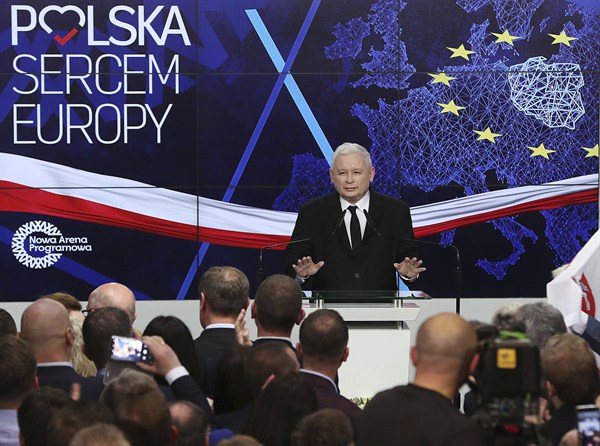If the Law and Justice party wins the Polish elections for parliament in October, it will be harder for observers to dismiss its success as a blip in Poland’s post-communist history. What is behind the continued appeal of a party that merges nationalism with populism in a country once seen as a model of liberal democracy?
With most of the votes counted, Jaroslaw Kaczynski took the stage and declared victory. “Today is a very important day,” he told a packed room of members of his populist Law and Justice party in Warsaw. PiS, as the party is known by its Polish acronym, had just had its strongest showing ever in an election for the European Parliament. Despite high hopes from a broad coalition of opposition parties, PiS won, with 45 percent of the vote. The opposition alliance received a combined 38 percent.
But Kaczynski, addressing party insiders at its headquarters on a Sunday night in late May, had bigger plans. “We have to remember that the decisive battle for the future of our country will take place this autumn, and we also have to win—and win by even more than now.”

